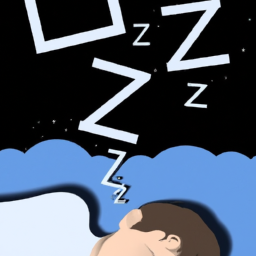To end a lucid dream smoothly, stay calm and focus on your breathing, taking slow, deep breaths to ground yourself. Visualize waking up and imagine yourself in your bed, feeling your limbs and breathing normally. Shift your awareness from the dream to your physical body by gently imagining yourself lying in bed and engaging with bodily sensations. Maintaining relaxation helps make the shift effortless. If you’re curious, exploring more tips can help make your wake-ups even more seamless.
Key Takeaways
- Stay calm and focus on deep, slow breaths to relax your mind and body.
- Visualize waking up and imagine the sensation of your physical body in bed.
- Reinforce your intention to wake peacefully by imagining familiar surroundings.
- Shift awareness from the dream to your physical body, engaging with sensory cues like breathing and limbs.
- Maintain a composed mental state, avoiding panic or forceful attempts, to facilitate a smooth transition.

Ending a lucid dream can sometimes be tricky, especially if you’re anxious to wake up but find yourself stuck in the dream state. If you want to leave the dream smoothly, focusing on dream stabilization techniques can help. When you notice yourself becoming aware that you’re dreaming, try to stay calm and avoid overexciting yourself, which can make your changeover out more difficult. Take slow, deep breaths to ground yourself in the dream environment, and imagine the sensation of waking up. Visualizing your bedroom or your bed can also reinforce your intention to wake up, aiding in a gentle shift. This approach not only helps you end the dream peacefully but also reduces the chances of experiencing a nightmare or disturbing dream fragment that could make waking up more stressful. Incorporating relaxation techniques can further enhance your ability to transition smoothly. If your goal is to prevent nightmares from disrupting your closure, it’s important to shift your focus to calming techniques. Nightmares often occur when your mind is overwhelmed or anxious, so consciously calming your thoughts can reduce their intensity. Remind yourself that you’re safe or that the dream is just a temporary experience. Reinforcing positive associations with waking up can help prevent traumatic or intense dream scenes from escalating. As you prepare to wake, avoid panicking or trying to force yourself out, since that may intensify negative emotions or cause vivid, unsettling images. Instead, maintain a steady, composed mindset, which encourages a smoother shift and minimizes the risk of nightmare prevention issues. Changing your mental state gradually is key. Instead of abruptly trying to wake up, focus on shifting your awareness from the dream to your physical body. Imagine your body lying in bed, feeling the weight of your limbs, and concentrate on your breathing. This active engagement helps your subconscious accept that it’s time to wake, reducing the chance of abrupt awakenings that could leave you disoriented or distressed. Remember, staying relaxed during this process makes the changeover less jarring. If you’re feeling anxious about waking, reassure yourself that it’s okay to leave the dream at any moment. Confidence in your ability to end the lucid dream peacefully will smooth the shift and help ensure a more restful awakening.
Frequently Asked Questions
Can I Control How I Wake up From a Lucid Dream?
Yes, you can control how you wake up from a lucid dream using dream control and waking techniques. Focus on mental commands, like intending to wake up, and practice techniques such as visualizing waking or gently shifting your focus. Staying calm and deliberate helps you wake smoothly. With consistent practice, you’ll get better at choosing your waking moment, making the progression from dream to reality more natural and less jarring.
Is It Safe to Force Myself to Wake up During a Lucid Dream?
Forcing yourself to wake up during a lucid dream is generally safe, but it’s like trying to eject from a roller coaster mid-ride—dangerous if you’re not careful. Dream control and awakening techniques can help you wake up gently without panic. If you really need out, do it calmly, focus on your breathing, and avoid sudden moves. Remember, your subconscious appreciates a smooth exit—no need for dramatic stunts!
What Are Common Signs That I Am About to Wake Up?
You can tell you’re about to wake up when your dream awareness shifts, and you notice details becoming fuzzy or less vivid. Often, during lighter sleep phases like REM, you might feel a sudden change in body sensations or a mental urge to open your eyes. These signs indicate your brain prepares to switch from dreaming to waking, so stay calm if you want a smooth awakening.
How Long Does It Typically Take to Wake up Naturally?
You can expect your dream duration to vary wildly, sometimes lasting mere seconds or stretching into hours, but typically, a natural awakening happens within 20 to 30 minutes of falling asleep. If you stay relaxed and let your body wake itself naturally, you’ll find the process smooth and effortless. Remember, rushing or forcing yourself awake can disrupt this delicate balance, making your wake-up feel abrupt or jarring.
Can Waking up Suddenly Cause Any Health Issues?
Waking up suddenly can cause some health issues, mainly due to dream interruption and sleep disturbance. When you wake abruptly, your body might experience a spike in heart rate or blood pressure, which can be stressful. This abrupt awakening can also disrupt your sleep cycle, leading to tiredness or grogginess. To avoid these issues, try to wake up gradually, allowing your body to adjust and minimizing potential health risks.
Conclusion
Ending a lucid dream safely guarantees you wake up feeling refreshed rather than disoriented. If you’re worried about abrupt awakenings causing confusion, try a gentle shift by imagining yourself leaving the dream scene calmly. Remember, with practice, you can master a smooth exit without sacrificing your sleep quality. Don’t rush the process—trust your mind to guide you. With patience, ending your lucid dreams becomes effortless, leaving you energized and ready for the day ahead.









